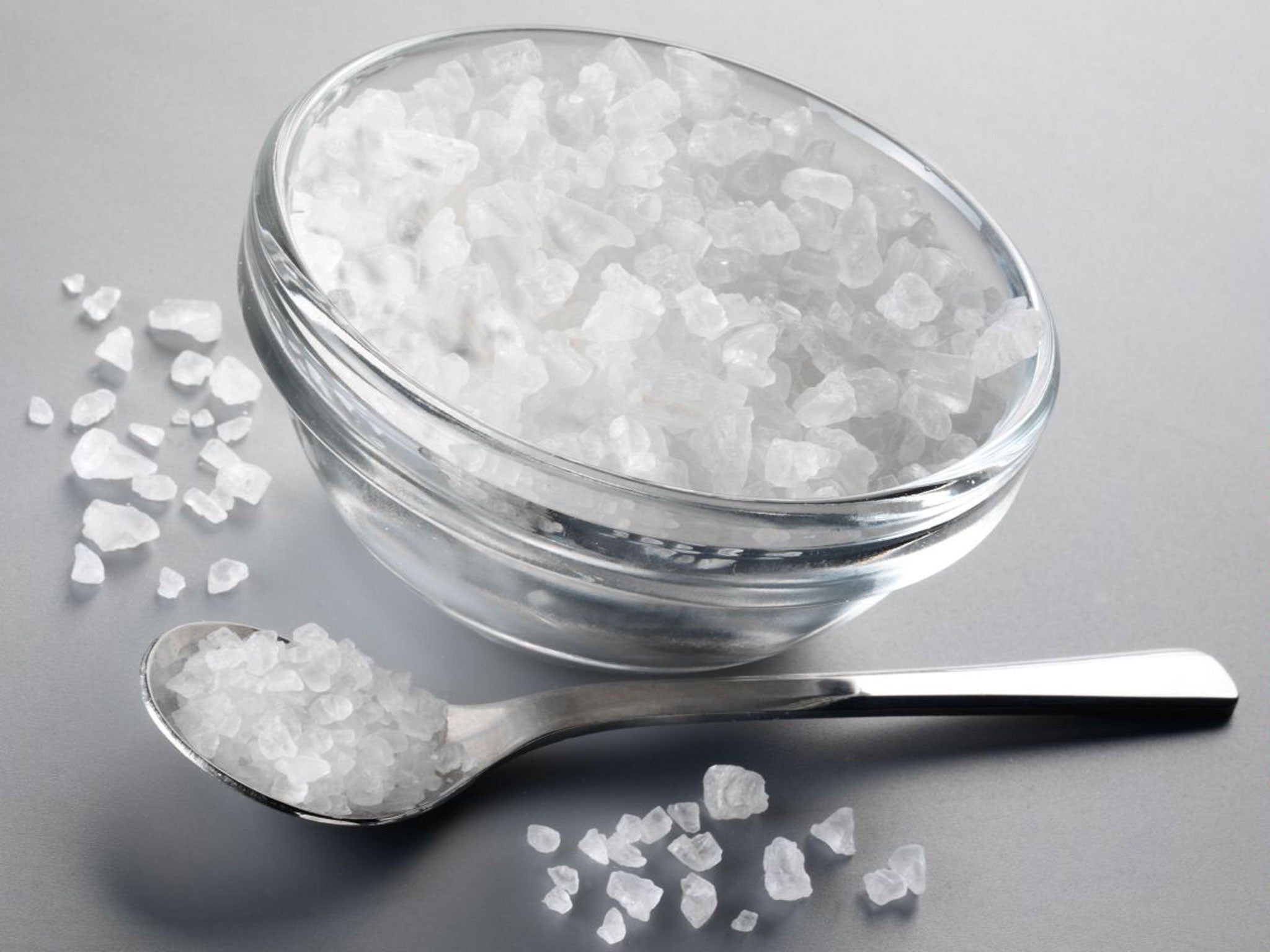Food manufacturers’ salt cuts ‘have saved lives’
Efforts to reduce salt intake pay off with heart disease and stroke deaths down 40%

Cuts to salt levels in our diet are likely to have contributed to huge reductions in the number of deaths caused by heart attacks and strokes over the past decade, doctors have said.
In new evidence of the harmful impact of salt in modern diets, and the benefits of cutting back, nutritionists compared data on people’s daily intake since 2003 with striking public health figures which show a 40 per cent drop in mortality connected with heart disease and stroke over the same time period in England.
Between 2003 and 2011, daily salt intake dropped by 15 per cent, according to data from the National Diet and Nutrition Survey. The drop is likely to have been largely driven by cuts to the amount of salt that food manufacturers put in their products, as part of wide-reaching public health campaigns which launched throughout the UK in 2003.
Breads and cereals, which account for around a quarter of our daily salt intake between them, have seen cuts of around 30 per cent and 50 per cent respectively, while manufacturers of pasta sauces, biscuits and crisps have also cut back, following a widely-publicised reduction strategy introduced by the Food Standards Agency, in response to campaigning by public health experts.
According to a new study by experts at Queen Mary, University of London, daily salt intake has fallen by on average 1.4g between 2003 and 2011 and the Food Standards Agency estimates that more than 11 million kilograms of salt have been removed from foods in the UK.
However our consumption remains high at approximately 8.1 – 8.8g per day, leading the FSAs in all four UK nations to set new standards to cut salt levels even further to achieve average intake of 6g per day by 2017.
The new study, published in the online medical journal BMJ Open today used several sets of data, involving different cohorts of people, so cannot conclusively prove the impact of salt reduction on heart disease rates, but the authors said that it was nevertheless likely it would have been “an important contributor” alongside other factors such as reductions in the number of smokers, and intake of saturated fats.
Salt is known to increase blood pressure, which in turn is a major risk factor for heart disease and stroke.
Professor Graham MacGregor, of the Wolfson Institute of Preventive Medicine at Queen Mary, University of London said that it was “absolutely clear” that salt had contributed to a fall in recorded blood pressure rates, and therefore helped save lives.
The drive to reduce salt levels has been spearheaded by Professor MacGregor’s campaign group of doctors and nutritionists under the banner Consensus on Salt and Health.
Many of the same experts are now leading efforts to force the food industry to cut the levels of sugar in food, as part of the campaign group Action on Sugar.
“We have absolutely no nutritional need to eat sugar or salt,” Professor MacGregor told The Independent. “Salt directly puts up your blood pressure, it is a major cause of death through that.”
“Sugar is merely an unnecessary source of calories… The best way to deal with obesity is to get your calorie intake down, particularly in ultra-processed fast foods, which give no feeling of satiation and are marketed to children. In some ways, I think it’s remarkable we’re not all obese, given what the food industry is doing to us.”
Victoria Taylor, senior dietician at the British Heart Foundation, said: “While the reductions in average intakes of salt are a positive change, we mustn't forget that they are still well above the recommended maximum of 6g a day for adults.
“As most of the salt we eat is already in our food, it is important that the food industry now works towards meeting the new salt reduction targets to make sure that we can continue to reduce the salt in our diet.”
Professor MacGregor said that the reductions in blood pressure rates caused by lower salt intake since 2003 would have been responsible for saving around 9,000 lives per year by 2011, and 18,000 incidents of heart disease or stroke.
Subscribe to Independent Premium to bookmark this article
Want to bookmark your favourite articles and stories to read or reference later? Start your Independent Premium subscription today.

Join our commenting forum
Join thought-provoking conversations, follow other Independent readers and see their replies